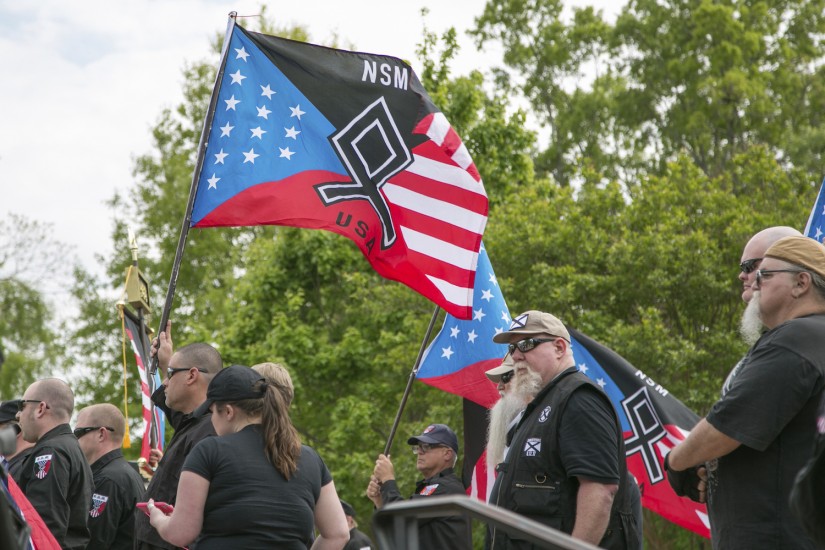MMM: So, could you distill some of the lessons that you picked up that people who are trying to wrap their heads around white power and the way that white nationalism is being thrown into public conversation can pay attention to?
KB: One thing that is widely misreported and really important to understand is how long this movement has been using the internet. A lot of people still think of white power and affiliated activism starting on the internet after the Oklahoma City bombing in 1995. And certainly that’s when the main website, Stormfront, gets going. But these activists were using early computer message boards in 1984, on a network called Liberty Net. And that was not sort of a casual “I’m going to post on my olden-time keyboard message board” kind of situation. This was the movement stealing millions of dollars in Northern California, traveling through the country to distribute the money to groups in all regions, getting those groups to buy Apple minicomputers, and then sending an activist around to train them how to use these message boards in 1984. And the message boards included not only assassination lists and ideological content; they also included things like personal ads and religious information.
So, effectively this movement has been using social network activism online since way before Facebook. They are pioneers of these strategies that have proven incredibly effective at radicalizing people and bringing about social change in all kinds of different registers around the world. So when we’re thinking about the effect of the internet on this movement, we have to be mindful that they are incredibly good at this. They are generations in.
Another thing is just the broad idea that when we’re thinking about the impact of warfare on American society, every surge in vigilante violence in American society has correlated with the aftermath of warfare. And that’s not anything so simple as veterans coming home and doing violence. It’s not so cut-and-dry as a story like Rambo, because when we look at the statistics, the effect seems to be something more like it’s dispersed across genders and across age groups. So all of American society becomes more violent after warfare. We now are in this time of unending war and prolonged return and continual deployments and redeployments, stop-loss and other strategies that prolong that period of aftermath that is entirely new in American society, but we should assume that there will be repercussions on the home front for the violence of warfare abroad.
